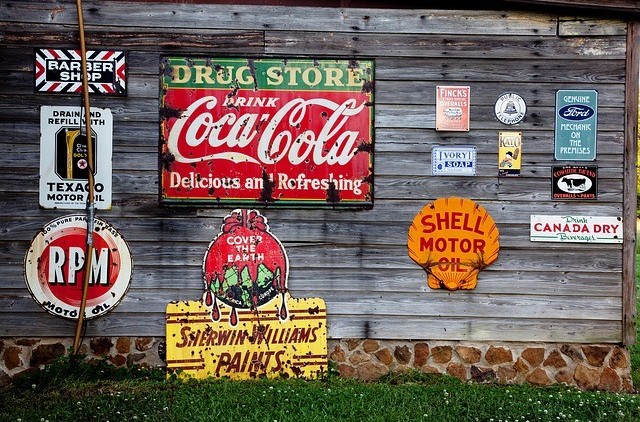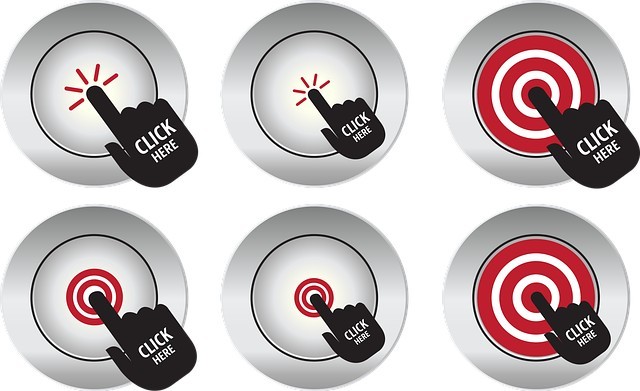
Many people write blogs or have an online presence, even if it is just a FaceBook account and many of those want to know how to make money from a website. It’s a simple question and the answer is that there are a lot of different ways to monetize your sites so that it can become a source of income for you.
In fact, if you are the owner of a website, then having that site generates money for you should be a priority whichever way you do it.
Why did you set up your website in the first place?
Many people set up a website without actually asking themselves one of the most fundamental questions: WHY?
Why did you set up your site and what is the purpose of the site? There are a number of reasons that people quote that might not mention money specifically, such as;
- To let people know what I do
- To set up a ‘shop front’ on the internet so people know I exist
- Because everyone else told me I should have a website
- Just to get my name out there
- To advise or educate people
My response to that is: that’s all very well, but some of the best so-called ‘non-commercial’ sites are still using their sites to generate income that at least will pay for the upkeep of the website, so getting your site to make money for you, should be on your agenda.
Even my daughter’s school website is in the business of generating money for the school: it ostensibly is about advertising the services of the school so that more people will apply. The more people that apply to the school, the more pupils the school will have on its roll. And the more pupils they have, the more money they will get from the government.
In addition to that, the school has online ways to pay for trips, lunches and uniform or advertise the PTA (other ways in which they can also generate income or cover costs). I know of other schools that also have online search engines which when you use them to search for and buy everyday things like groceries or stationery, the school gets a slice of the pie in the form of an affiliate commission.
So this begs the question: If the schools are getting in on the act, why aren’t you?
If you don’t already have an online presence, then there is no doubt, if you are in business, you need to get a website. There are many ways to do this too, and I have written separate articles about how to do this here.
Once you have your site or online presence, there are many ways that you can use it to generate income for you. I have covered some of the main ways below:
1. Paid Adverts

You can get some paid adverts for your website and generate income that way in the same way that a magazine or TV station would make money. People pay you to add a banner or link on your site for their products. Magazines and TV companies can charge huge sums for adverts they include on their channels because they guarantee the advertiser a certain amount of exposure to buyers and the prices vary according to the exposure the advertiser will receive.
For example, an advert on the back page of the magazine is usually more expensive than one which is buried on page 45 of the magazine. And an advert placed in the interval of the Super Bowl or FA Cup Title match will cost many times more than an advert placed on daytime TV.
The same principle holds true when it comes to online adverts on your site. You need to be able to guarantee a certain amount of exposure to the advertisers, which in the case of websites, means TRAFFIC! How many people are you getting to visit your site on a daily or monthly basis: the more people your site is reaching, the better chance you have of generating income from advertising.
Assuming that you have some decent traffic, there are a few sources of potential advertisers for your site depending on the nature of your website:
1) Local advertisers: These might be a good source of income if you have a locally-based site for example, a travel site based around a town or vicinity; or you are yourself a local business set in a particular area. You can approach local businesses to place an advert on your site. 
2) Advertisers in a related niche to your own. For example, if you are a car sales company with several outlets, you may find success in allowing adverts on your site from motor insurance agents, or local garage services. If this is the way you go, then try to think about lateral markets in your niche; that is, markets that are related to your own business but which are not in direct competition with you for the same products or services.
3) Google AdSense of similar automatic advert placement services. Many websites use services of a third party such as Google AdSense or Media.net which is the Yahoo/Bing alternative to AdSense. The great thing about these programs is that they are generally easy to set up and will place ads automatically on your site after you sign up to their program and add some simple HTML code to your site.
The company concerned can usually place relevant, highly-contextualised adverts on your site which will be individual to the users visiting the site. In that way, two different users of your site might experience two completely different adverts depending on their own personal preference.
So if Google knows for example, that person A visiting your site is interested in fishing or was searching yesterday for fishing gear, it will show a fishing-related advert on your site to that person. But if person B visits your site and Google knows that they were last searching for washing machines, it will show related adverts for white goods and washing machines to person B when they visit your website. They will also charge the advertisers automatically and pay you a lump sum when you reach a particular level or adverts, so collecting payment is easier than having to collect the advertising money yourself.
2. Affiliate Marketing
Affiliate marketing is a way in which your website can generate money. In affiliate marketing, you add links to your site for either products or services of companies that you are an affiliate of. These work best if they are related to your site. So, for example, if you have a travel website, it might be good to become an affiliate for a company that sells luggage as it is in a related niche to yours. It would be less appropriate to have affiliate links for juice makers for example, which may sit better on a health-related website.
If a user clicks on one of your links and eventually buys a product or service from the company, then you receive a commission for directing the customer towards the company. I like to think of affiliate marketing like a friend pointing people in the right direction so they can find a solution for a problem they have. .

There are several ways that you can sort out affiliate links for your site.
1) Individual affiliate programs. There are many, many affiliate programs that you can sign up to depending on your niche. You can search and set up these individually so for example I have setting up some affiliate links for information about Emotional Freedom Therapy (EFT or tapping) on my niche site. I downloaded the links and banners and added them to relevant posts on my site.
I have joined about 5 individual programs like this which are relevant to my niche. To find these, you can just search in Google or other search engines along the lines of your subject and niche. E.g. search “microwave affiliate programs” or “hiking boots affiliate programs” and choose the ones that suit you. Sometimes you have to send them your website links to be approved, and others you can just sign up to and start working with them.
2) Affiliate wholesalers.
The second way to sort out your affiliate links is through a company that act like a kind of broker or wholesaler for affiliate programs. These are companies such a Clickbank, ShareaSale and Awin. These are effectively companies that manage many affiliate programs and you can join one company and then choose the products or services you want to promote through them. This is an easy way to search for affiliate programs and they will manage commissions in for you in one place.
Sometimes with these companies, you have to be approved by individual ‘vendors’ within the umbrella company first but with Clickbank for example, you just need to join them and then you can choose from literally thousands of products either in your niche or not. The benefit of this is that with Clickbank for example, you don’t even really need a website – you can promote the links on social media or through friends and family instead.
Here are some other affiliate companies you can look into.
3. Amazon Associates
The third way that a lot of people get affiliate links is through the world’s largest ‘super-market!’ Amazon offers an affiliate program known as Amazon Associates, but you need to have a website that has a few posts on it first before they accept you. You can then log into the Amazon Associates program and search for products to add to your site from there.
The downside to Amazon Associates is that the commissions they pay are smaller than many other individual affiliate programs, and the ‘cookie time’ is short. The cookie time is the length of time that Amazon will recognise that a customer has been recommended to them by you, and will therefore pay you a commission for anything they buy.
That means that if someone clicks on a link from your website, it is only valid for about 24 hours with Amazon. After that time, if the user clicks on Amazon and buys a product, you will not get the commission for referring them. Compare this to some other programs such as the one at Wealthy Affiliates for example, where the cookies at Wealthy Affiliate are valid for a lifetime. There are number of country-specific Amazon Associates sites so you should research the one local to your country.

Cookie length for affiliate programs vary from company to company but 1 month to 6 months is common.
A word of caution though about adding too many affiliate links to your site, because Google can get suspicious of articles and sites that are predominantly affiliated links. A few years ago, there were a lot of sites that were basically made ONLY around affiliate links and were just pages of links instead of pages of information. The search engines became very wary of these and so they don’t get ranked much anymore in favour of sites that offer users good content and unique information. Therefore, make sure your site has some good content as well so that Google starts to see it as an authority site. Many people don’t really get around to adding affiliate links until they have a few good articles on their site.
Another way is to write a review of one product – many people do this so that they give lots of information on the pros and cons of a particular product and then you add a link (your affiliate link) so show where readers can buy the product. This is also a good way to monetise your site.
4. Guest Writer, Paid-For Posts
 Another way to monetise a site is by allowing other people to write posts for your site which include links back to their own websites. People will usually pay a small amount, say $5 – $20 depending on how many people normally visit your site.
Another way to monetise a site is by allowing other people to write posts for your site which include links back to their own websites. People will usually pay a small amount, say $5 – $20 depending on how many people normally visit your site.
The benefit to you is that your site has additional posts of blogs on it so you can build up your content quickly. The benefit to the other writer is that they get back links to their own site, which can help with their rankings.
You can advertise on websites such as Fiverr for writers to pay to guest blog on your site. It is advisable to set up a some terms and conditions in which you establish what you will give in return for the fee you charge as well as what you expect in terms of word count, expected delivery and quality. Most website owners who do this accept articles that are related to their own niche rather than just random articles.
5. Sell your own products
Many people sell their own products or services online and that can be a good source of income too. One of the most common things to sell is an ebook, whether this is something you have written or something that you have commissioned someone else to write for you to sell. There are pros and cons to selling your own products: they can add to the authority of your site and establish you as an expert in your niche you also need good distribution mechanisms and payment methods set up on your site so that you can efficiently process orders.
Based on these points, you can easily begin to make your website make money for you. There are other ways as well but these represent some of the easiest and most used ways to bring in extra income from your website, now.
I’d love to know how you get on with monetizing your site, so please do leave a comment below and let me know.
RELATED POSTS
Start an online business for free using Wealthy Affiliate
How to start an online business for free
Try doing something new to get new results



Hi Gail,
Thank you for the post. I wish I read something like this 10+ years ago before I set up my son’s website. He is a musician, and when he was younger, I set up his website to let people know that he exists and what he does (just as you wrote in this article!). Later, I had redesigned his website to make it look more like a professional musician’s portfolio and “get his name out there” The site, which is now over 10 years old ( I don’t even remember exactly how old) could make some good money for us, but it never produced a penny because I didn’t know how to monetize it and attract traffic until I came across Wealthy Affiliate.
Now, I am learning and working on two new websites, and still didn’t get a chance to monetize my son’s site, but it is on a waiting list and is in my plan 🙂
Another idea from your post drew my attention… I’ve never used other people’s writing services. I thought that I should hire people to write for my website if I want more frequent updates and more content. You are saying that once I get some decent number of visitors, I could actually charge others a fee for posting their blogs with backlinks on my website. That’s very interesting! I will definitely make a note of it.
Thank you again for your informative and well-written post.
Hi Julia
Many thanks for reading the article and for your comments. Well done for creating a website for your son and his music and for joining Wealthy Affiliate. You can always work on your son’s website when you have time as I know how time-consuming these websites can be. Getting traffic is really the basis of monetising any site as no advertisers will pay unless there is some return to them. You could add a blog to your son’s site and start with some affiliate links once there is some traffic there.
In answer to your specific questions, the answer is ‘yes’. You can get people to write articles for your site as long as (again) there is something in it for them with some traffic that can lead back to their own site. In addition, they have a backlink on your site which is also good. I know several WA members who have used this to system to create additional income.
I also think that for your son, if he is an up and coming musician, that you could look at Patreon which is a site in which creative people can gain patrons whilst they do their creative ‘thing’. It’s worth a look anyway. Thanks again and I hope you find this helpful. Gail
Hi, I think it’s time to start making some money for me too.
I have a blog about Thailand, I think it is quite hard to monetize that one. What would you suggest?
I write about different places to visit in Thailand and about the kitchen, traditions etc.
I have some Amazon affiliate products but so far no one is buying anything.
Do you think AdSense would be a good choice for me? is it easy to get access to AdSense?
Hi Stefan.
Thank you for taking the time to read my article and to comment. Yes, we all need to monetise our sites if we are taking it seriously as a business. For your Thailand site, I think I would look at going down the route of related affiliate programs. You could maybe look at things like travel insurance, car hire companies, hotel booking companies and things like that. If you have an article about specific places, then maybe see what is around in the locality that may offer affiliate programs such as larger tourist attractions.
AdSense if very easy to set up. You need to sign up to their program and add a small piece of html code to the header of your site. They will add relevant adverts to your site and pay you on either a click-though basis, or sometimes on the number of impressions. Your revenue will depend on the number of people who visit your site so could range from a few dollars a day to tens of dollars a day. If people click on a link, then you get paid more.
I hope this helps and good luck with monetising your site. Let me know how you get on with AdSense. Gail.